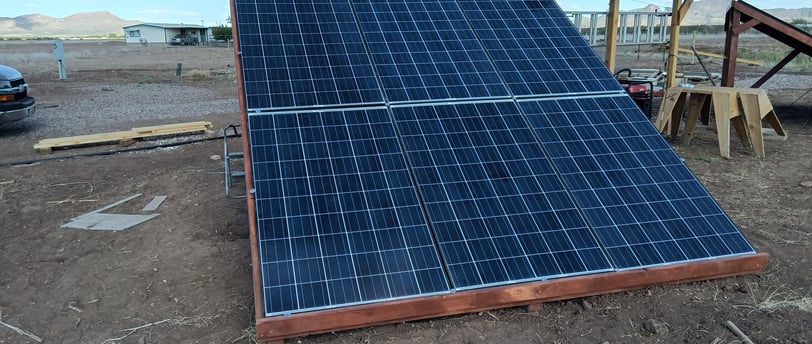Harnessing the Power of the Sun: Understanding Solar Energy Basics
Understanding Solar
12/14/20242 min read


Harnessing the Power of the Sun: Understanding Solar Energy Basics
Solar energy represents one of the most promising and rapidly evolving renewable energy technologies of our time. As the world seeks sustainable alternatives to fossil fuels, solar power stands out as a clean, abundant, and increasingly accessible energy source that can transform how we generate and consume electricity.
What is Solar Energy?
At its core, solar energy is the radiant light and heat from the sun that can be harnessed using various technologies. This incredible power source is essentially limitless, with the sun providing more energy to the Earth in one hour than humanity uses in an entire year. The two primary methods of converting solar energy into usable power are photovoltaic (PV) systems and solar thermal technologies.
Photovoltaic (PV) Technology
Photovoltaic systems are what most people think of when they hear "solar panels." These systems use semiconducting materials, typically silicon, to convert sunlight directly into electricity. When photons from sunlight hit the solar cells, they knock electrons loose, creating an electric current. Modern solar panels can convert between 15-22% of sunlight into electrical energy, with some advanced technologies pushing that efficiency even higher.
Solar Thermal Technologies
Unlike PV systems, solar thermal technologies capture the sun's heat to generate electricity or provide heating. These systems use mirrors or lenses to concentrate solar radiation, creating high temperatures that can drive turbines or provide industrial process heat. They're particularly effective in large-scale power generation and in regions with consistent, intense sunlight.
Benefits of Solar Energy
The advantages of solar energy extend far beyond simple electricity generation:
1. Environmental Sustainability: Solar power produces zero greenhouse gas emissions during operation, making it a crucial tool in combating climate change.
2. Renewable and Abundant: Sunlight is an infinite resource, unlike finite fossil fuels. Every region on Earth receives some amount of solar radiation.
3. Decreasing Costs: The price of solar technology has dropped dramatically over the past decade, making it increasingly competitive with traditional energy sources.
4. Energy Independence: Solar installations can reduce dependence on grid electricity and provide power in remote locations.
Practical Considerations
While solar energy is promising, it's not without challenges. The intermittent nature of sunlight means energy storage solutions like batteries are crucial for consistent power supply. Additionally, the initial installation costs, while decreasing, can still be significant for individual homeowners and businesses.
Factors Affecting Solar Efficiency
Several key factors impact solar energy production:
- Geographic location
- Angle and orientation of solar panels
- Local weather conditions
- Panel technology and quality
- Potential shading from nearby structures or vegetation
The Future of Solar
Technological innovations continue to push the boundaries of solar energy. Emerging technologies like perovskite solar cells, bifacial panels, and integrated solar solutions for buildings promise even greater efficiency and versatility in the coming years.
Getting Started with Solar
For those interested in solar energy, the journey typically begins with:
- Assessing your energy needs
- Evaluating your property's solar potential
- Consulting with professional solar installers
- Understanding local incentives and tax credits
- Choosing between purchase, lease, or power purchase agreements
Conclusion
Solar energy represents more than just an alternative power source – it's a key technology in our transition to a sustainable, clean energy future. As technologies improve and costs continue to decline, solar power is poised to play an increasingly critical role in our global energy landscape.
Whether you're a homeowner considering rooftop panels, a business looking to reduce energy costs, or simply someone interested in sustainable technology, solar energy offers exciting possibilities for a brighter, cleaner future.
